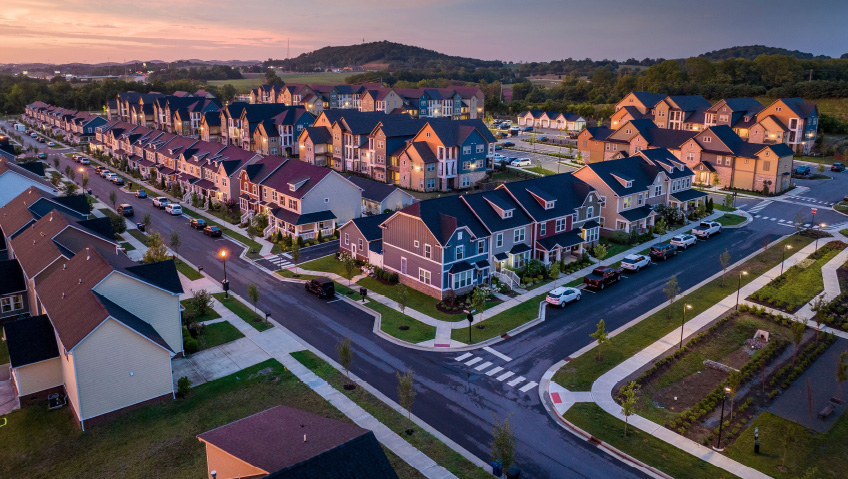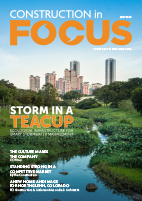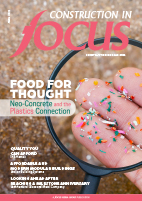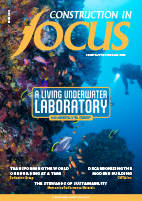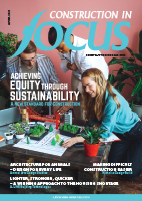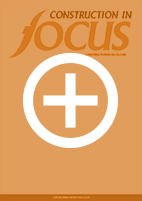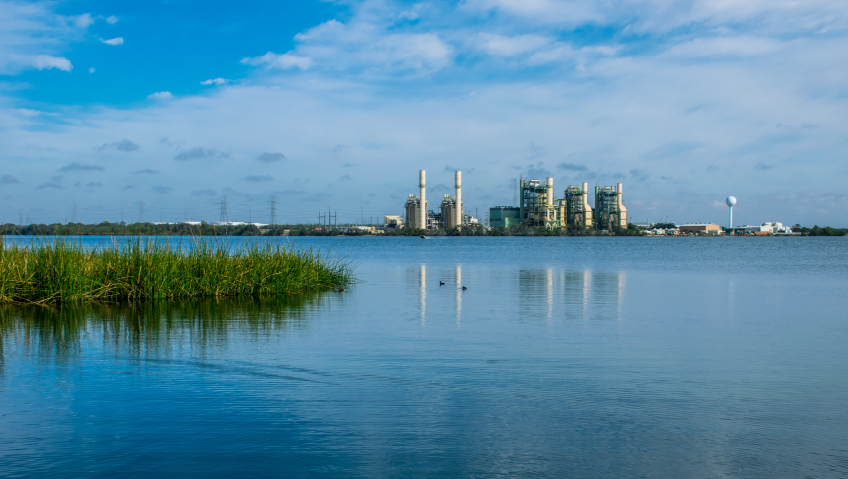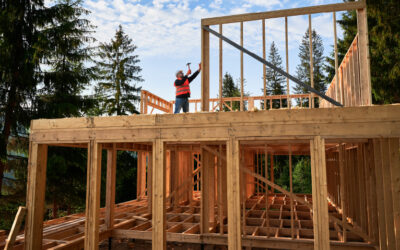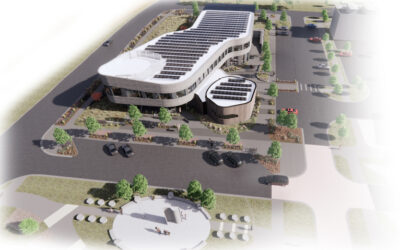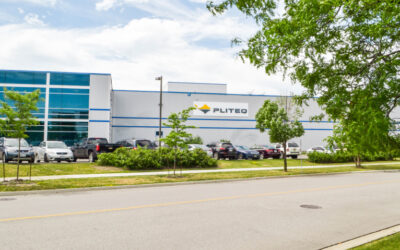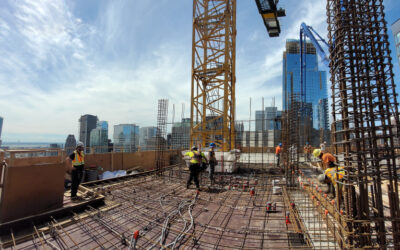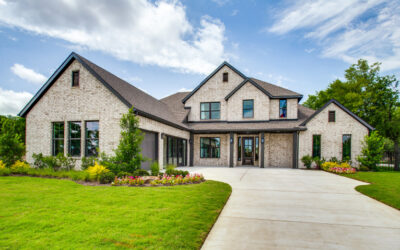Back in 1963, the world was swept up in Beatlemania. In America, NASA was pushing the boundaries of space exploration with its Mercury capsule, and Martin Luther King Jr. delivered his “I Have a Dream” speech.
It was also the year that FK Architecture was created.
Today, 60 years later, FK is regarded as one of America’s top architecture firms. Active in multifamily, mixed-use/planning, commercial, renovations, interiors, hospitality, senior living, and apartments/condominiums, FK is seeing growth and potential in many areas, including affordable living, modular construction, and micro homes.
“One of the biggest things that has changed in the industry is modular construction,” says Managing Principal Gary Badge. Seeing the need for housing solutions, Badge got FK involved in this new arena about four years ago. “Lots of developers, contractors, and others in the community are looking at building differently, and it’s really because of all the challenges we are facing within this industry,” says Badge, a 19-year company veteran.
Building a legacy
Lyle Fugleberg first opened his one-person architectural practice in October 1963. Following a successful collaboration with Bob Koch, the size of the practice “doubled” from one to two in 1967. By 1972, Fugleberg Koch Architects, Inc. was officially formed.
Starting with senior homes in the ’70s, the firm entered other markets, including hospitality and multifamily housing. With a staff of 53 today, FK Architecture looks back on a proud history and forward to a bright future. The company was one of the first three firms in Central Florida, and many others that have emerged over the decades were launched by people who started at FK.
On October 27 the firm celebrates its 60th anniversary with staff, clients, and friends. Bob Koch and Lyle Fugleberg will be in attendance to mark the occasion.
A highly diverse company, FK welcomes staff from many different cultural backgrounds, which is a key factor in its success. A supporter of community initiatives and continuing education, FK is also behind the Robert and Joanne Koch Scholarship for Architecture. Created in honor of Joanne after she passed, the annual scholarship was established to give back to the community. Initially established for students pursuing their bachelor’s degrees in architecture in Florida, the scholarship has since expanded to include more schools. “We are proud to offer that money,” says Badge. “It’s money you can use in a beneficial way to fuel your education.”
Along with the scholarship, the firm is a proud supporter of area charities, including Habitat for Humanity and Nemours Children’s Hospital, to which the company makes an annual donation. The team also donated 200 trees earlier this year, 100 of which will be planted in FK’s home state of Florida, with the other 100 donated to Brazil’s tropical rainforests.
Tackling housing issues
The FK team knows well that there is a shortage of affordable housing solutions across North America. Too few young people entering the skilled trades, supply chain issues, experienced construction workers retiring, and skyrocketing inflation are fast making the dream of home ownership a mirage for many. Great believers in finding solutions, Badge and his team at FK Architecture are looking at alternatives to traditional housing that are within financial reach. “Modular speaks to all of those issues, and we are getting lots of opportunities to present our services in that realm,” says Badge.
“It’s exciting, and something we’re very interested in. I’ve taken on the mission to promote modular because I feel strongly about it. I think it’s the way of the future and a significant alternative to conventional building,” he says.
Seeing the direction the market is heading, the company became involved with the Modular Building Institute (MBI). Founded 40 years ago, the nonprofit MBI is an international trade association serving the rapidly expanding modular construction industry. For FK Architecture, this relationship offers another way of doing business.
“A lot of us here at FK have had experience in modular at some point,” says Badge. “The firm has had projects in the past where we explored modular, and as you can imagine, things were done very differently back then than they are today. So we are proud to say we were involved in modular at its inception, and we understand its foundation and principles.”
Small is beautiful
FK Architecture remains proud of its many affordable housing projects over the decades and believes micro homes will soon play a key role. Looking at prototypes in the single-family and micro housing market, FK’s view on affordability doesn’t necessarily mean “low-income” but rather attainability for buyers. Not everyone can afford $3,000 a month for a two-bedroom apartment, and FK Architecture believes there are attainable, economical solutions.
“We have streamlined things from our years of experience and come up with a concept we think will be very beneficial to communities,” says Badge.
Affordable housing is an issue in many municipalities, which local governments are seeking to address. For FK Architecture, the goal is to get underway in the last quarter of 2023 and start building next year. Working with a local manufacturer in Central Florida on a prototype, micro house panels would be delivered to site and tilted up, making them faster to erect while still remaining competitive with conventional build projects.
Starting with a basic chassis, micro houses are highly customizable. Designed to have a small footprint, they can also be made incrementally larger. Working within Department of Transportation parameters, it is possible to deliver such homes to urban, suburban, and rural sites—saving time, money, and carbon emissions.
“If it is panelized, it is a different scenario, because we can stack parts and pieces,” Badge explains. “Think of IKEA, and how parts come in a box; you can have more units delivered at a time, because logistics is always an issue.”
Owing to their smaller footprint—from 450 square feet up to about 600 square feet—micro homes are extremely efficient and sustainably made. Bathroom and kitchen layouts can be standardized, and from a construction standpoint, sub-modules are built off-site to make construction faster and easier on-site. Since they are designed with an upstairs loft, micro homes are ideal for many purposes, including live/work spaces where owners can run a small shop and then sleep upstairs.
When first approached about smaller homes, the FK team was asked how many units would fit on a quarter-acre site. Twelve units were first considered, then seven because of the space needed for parking. Units can take on different configurations to work within confines and meet zoning requirements. “Local authorities seem to have a lot of small parcels, so that was our target when we initially looked at this prototype,” says Badge. “Then we thought it was applicable to a boutique resort/market rate situation—it doesn’t just have to be for the low-income housing market—and partnered with the local jurisdiction. So now we’ve expanded that platform. There was a lot of research and development involved in creating it.”
Valued and much praised by its clients—many of them repeat—and much awarded, too, FK Architecture’s recent accolades include being named one of the Best Places to Work 2023 by the Orlando Business Journal, and making the Fast 50 and Golden 100 lists as one of Central Florida’s largest privately held companies. Last year, FK was named one of the nation’s top architecture firms in the 2022 BD+C Giants 400 Report.
From small renovation jobs to high-rise projects, FK Architecture takes on all projects with the same commitment to quality and client service. Many of its recent projects are mid-rise/garden-style work and conversions, such as transforming a hotel into multifamily units. And while these projects make up a significant amount of FK’s business, the firm is open to larger, more complex resort-style projects.
Multifamily and modular
In the future, Badge would like to see FK Architecture be the go-to firm for multifamily and modular deliverables. “They are one and the same and separate at the same time. We’ve had multifamily as one of our stable project types since the inception of the firm. I want us to be the pioneer, the mainstay, the ultimate experts, and the definitive solution,” he says.
“We have enough expertise and background in it, and we’ve got the resources and networks to affect that. Modular could be in the multifamily world, and it could also be separate because it’s just a construction deliverable.”
He finds that of all areas in the United States, the Southeast is particularly void of modular deliverables in terms of both housing and hospitality. Modules exist for school portables, first response situations, and some medical purposes, but Badge says it’s not yet at a point where you can point to a project and say, “Oh, that’s a modular one” or “I know who did that.”
“If you went out west, you could do that pretty easily,” he says. “We’ve been active in the sector, and I don’t know any other firm that’s as active as FK Architecture; I go to functions and don’t see anybody other than out-of-state firms. I’d like to see us take that lead and bring modular to our clients.”

